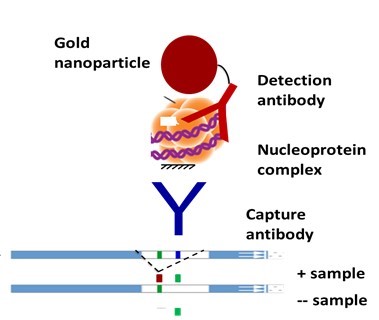Innovative and rapid point-of-care histone test strips for early diagnosis of sepsis in pregnancy and childbirth
Documented incidence of sepsis worldwide is 1.8 million cases annually, increasing in low-income countries and vulnerable populations, such as pregnant women and infants (75,000 maternal/> 1 million newborn deaths every year). Given this devastating scenario is imperative to seek new strategies based on scientific findings and application of innovative technologies to minimize the social impact of sepsis. Based on these assumptions, and using science/technological approaches, we propose to develop a rapid, low-cost and effective method for detecting sepsis in early stages. For this, as scientific approach, we will take advantage of the potential features of histones as sensitive/effective biomarkers of sepsis, and as technological approach, we will benefit of the versatility, simplicity and low-cost of test strips. The diagnostic test will be simple, comfortable, easy to interpret and low-cost for prognosis/early diagnosis of sepsis based on histones expression, which can be used by non-technical experts in any hospital/health center worldwide, but which by its nature, is designed for poor countries. Therefore, proof-of-concept of this diagnostic test will be performed in Uganda, in order to analyze benefits and reduction in mortality of pregnant women and infants in that country. The availability of such diagnostic method would be a significant improvement in recognition of sepsis and the appropriate therapy administration.
The innovative combination of histones and strips make this diagnostic test a significant improvement over the inefficient methods currently used for sepsis diagnosis, such as serum lactate measurement, microbiological sampling, number of white blood cells, etc.
- A collection of monoclonal antibodies able to recognize human histones and nucleosomes (histone-DNA complexes) with a wide range of affinity and cross-reactivity
- A plate Enzyme-Linked ImmunoSorbent Assay (ELISA) for the sensitive analysis of nucleosomes in human plasma
- A strip test for simple, rapid and low-cost detection of nucleosomes in human plasma


